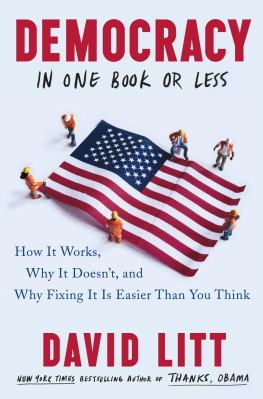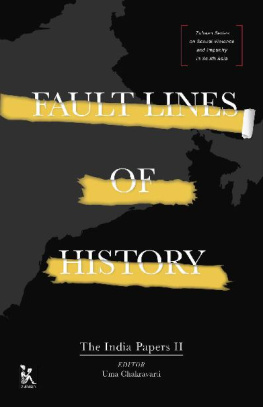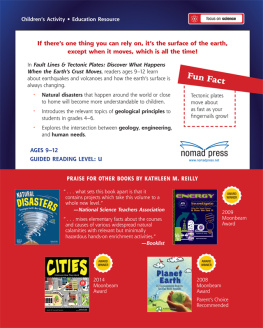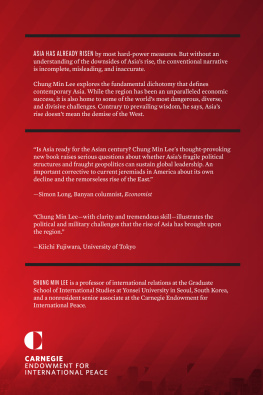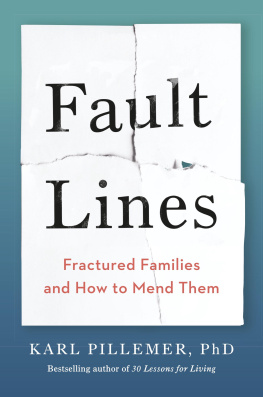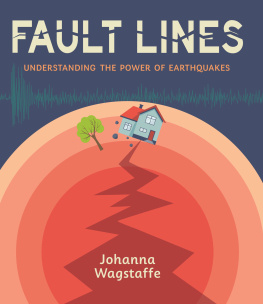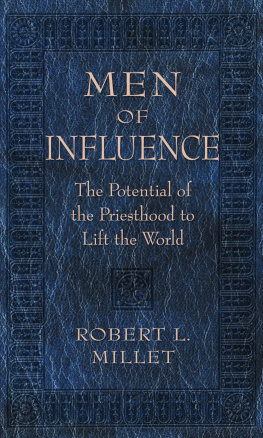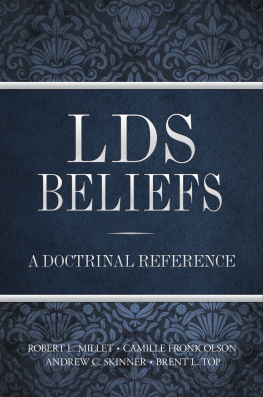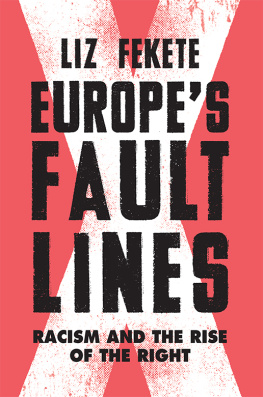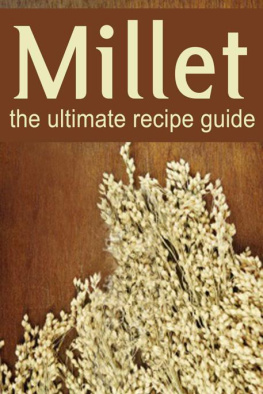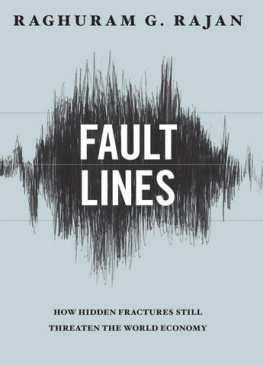Kitty Millet - Fault Lines of Modernity: The Fractures and Repairs of Religion, Ethics, and Literature
Here you can read online Kitty Millet - Fault Lines of Modernity: The Fractures and Repairs of Religion, Ethics, and Literature full text of the book (entire story) in english for free. Download pdf and epub, get meaning, cover and reviews about this ebook. year: 2019, publisher: Bloomsbury USA, genre: Science. Description of the work, (preface) as well as reviews are available. Best literature library LitArk.com created for fans of good reading and offers a wide selection of genres:
Romance novel
Science fiction
Adventure
Detective
Science
History
Home and family
Prose
Art
Politics
Computer
Non-fiction
Religion
Business
Children
Humor
Choose a favorite category and find really read worthwhile books. Enjoy immersion in the world of imagination, feel the emotions of the characters or learn something new for yourself, make an fascinating discovery.

- Book:Fault Lines of Modernity: The Fractures and Repairs of Religion, Ethics, and Literature
- Author:
- Publisher:Bloomsbury USA
- Genre:
- Year:2019
- Rating:3 / 5
- Favourites:Add to favourites
- Your mark:
- 60
- 1
- 2
- 3
- 4
- 5
Fault Lines of Modernity: The Fractures and Repairs of Religion, Ethics, and Literature: summary, description and annotation
We offer to read an annotation, description, summary or preface (depends on what the author of the book "Fault Lines of Modernity: The Fractures and Repairs of Religion, Ethics, and Literature" wrote himself). If you haven't found the necessary information about the book — write in the comments, we will try to find it.
Kitty Millet: author's other books
Who wrote Fault Lines of Modernity: The Fractures and Repairs of Religion, Ethics, and Literature? Find out the surname, the name of the author of the book and a list of all author's works by series.
Fault Lines of Modernity: The Fractures and Repairs of Religion, Ethics, and Literature — read online for free the complete book (whole text) full work
Below is the text of the book, divided by pages. System saving the place of the last page read, allows you to conveniently read the book "Fault Lines of Modernity: The Fractures and Repairs of Religion, Ethics, and Literature" online for free, without having to search again every time where you left off. Put a bookmark, and you can go to the page where you finished reading at any time.
Font size:
Interval:
Bookmark:

Fault Lines of
Modernity

CONTENTS
Kitty Millet
Gerald Gillespie
Geoffrey Green
Wlad Godzich
Shawna Vesco
Ipshita Chanda
Christopher Weinberger
Sara Hackenberg
Hope Howell Hodgkins
Stephanie Heimgartner
Dorothy Figueira
Steven Shankman
Kitty Millet
This collection came into being through the encouragement and support of a cohort of colleagues and interlocutors. At San Francisco State University, Julietta Hua and Rachel Gross offered gracious and thoughtful insights not only about the merits of the project, but also about discrete essays. Dane Johnson, chairperson of Comparative and World Literatures, has always been a challenging and reflective interlocutor. Likewise, Fred Astren, the former chair of the Department of Jewish Studies at San Francisco State University, found unique and thoughtful ways to support this project. His forethought and counsel have been greatly appreciated. Michael Berkowitz, of University College London, remains a constant provocateur, whose serious questions reflect repeatedly the necessity of interdisciplinary dialogue. Susan MacReynolds and Soelve Curdts have continuously reminded me that there are many ways to think about the themes of the collection.
The collections breadth has required contributors to think across disciplines, through various theoretical givens, and conflicting methodologies, to permit the destabilization of their own objects of knowledge and subfields, in order to start a dialogue between colleagues. While disagreement became the only shared sentiment within the cohort, the collections contributors demonstrated that even in such disagreement, they could still bring collegiality and commitment to the conversation. They were all agreed on one tenet, in order to speak to each other, academics have to know the contours of individual positions, their boundaries within the capacious and expansive topic of religion, ethics, and literature.
We would also like to acknowledge the gifts of the Department of Jewish Studies, the Department of the Humanities, and the Program in Persian Studies, who initially supported the Fault Lines of Modernity conference at which several of these chapters were first conceived. We would like to thank Paul Sherwin, the former dean of the College of Liberal and Creative Arts at San Francisco State University. His insight and encouragement provided the impetus for Professor Millet to accept the chairpersonship of the International Comparative Literature Association (ICLA) Research Committee on Religion, Ethics, and Literature, and to host its inaugural event at SF State. Dean Sherwins encouragement of faculty has left a lasting imprint on all those who have ever worked with him.
Individual members of the ICLA Executive Council remain thoughtful partners in this endeavor. The editors thank especially Professors Sowon Park, of the University of California, Santa Barbara, Haun Saussy, of the University of Chicago, and Liedeke Plate, of Radboud University, Nijmegen, Netherlands. Additionally, the editors are grateful to the global cohort of researchers, both within the the ICLA Research Committee on Religion, Ethics, and Literature and outside of it, who have at times weighed in on our research, argued with us, and helped us generally clarify our thinking on the many contexts confronting us. While this project has never attempted to be exhaustive or comprehensive in scope, we have benefitted greatly from the multiple perspectives disseminated through these conversations and debates.
A collection of this kind requires significant library resources. Consequently, Professor Millet thanks Nga Tran, part of the library staff at UC Berkeley, for her helpful suggestions, as well as Aleta Asbury, and Ned Fielden, at San Francisco State University, for their insights into how best to fulfill the demands of scholars in a digital age.
We would like to thank Bloomsburys anonymous referees, whose care and constructive critical suggestions encouraged Professor Millet to see this project through to its end; Haaris Naqvi, whose insights about publishing and the market were apt and thoughtful; his assistant, Katherine De Chant, who responded each time to Professor Millets requests for changes with optimism and graciousness, as well as Bloomsburys copyeditorstheir herculean efforts made this book a better one. Bloomsbury as an academic press remains a fantastic facilitator for scholarly work. Finally, we thank our families who have been routinely patient and encouraging.
Kitty Millet
This collection offers a conceptual cartography of how humanist scholars perceive not only the relationships between religion, ethics, and literature, but also the philosophical principles that underwrite those posited relationships. The chapters reveal that familiar and unfamiliar theories about the interactions of these disciplines with each other are tied ultimately to the values scholars attribute to literature as an entity: how it works, for whom it works, and why it works. To some degree, these values suggest a conflict of the faculties in which literary value is never far from the discussion of literatures efficacy for individuals and communities. Thus literatures significance informs both the ways we imagine the worlds we live in and the future worlds we hope to inhabit. These two aspects, our imagination of and our hope for are too often juxtaposed to life circumscribed by modernitys fault lines, those divisions predicated on segregation and separation, expressed as racial or ethnic difference. The world in which we live offers stark contrast to the world we imagine we inhabit.
The world we live in
In 1979, Pope John Paul II returned to his native Warsaw for the first time in his tenure as pope. Met by thousands of Poles, the Pope, recognizing this unique moment in history,
spoke openly on such sensitive themes as human
Thousands of Poles associated their religious freedom with the Popes demand for human rights, and freedom of conscience. Folded into his homily was the injunction that providential agency could not be excluded from human narratives. The state had a social duty to recognize freedom of religion, as that duty obligated the political state to uphold Christs presence in the history of man.
Decades later, on November 11, 2017, Europe Will Be White Again, and Clean Blood.
Participants flew in from all over Europe, especially from those countries whose histories of fascism
As the rally moved to one specific area of Warsaw where a 1930s pogrom had happened, groups affixed placards and banners, celebrating the attack on Jews, but now in addition to the anti-Semitic rhetoric, there was a new banner, Pray for Islamic Holocaust. On the Radical Camps social media sites, a Wall Street Journal reporter explained, the group asserts that the influx of Syrian refugees into Europe is part of a conspiracy driven by identity. The 1979 event, its narrative context for We want God, had been eclipsed by the crowds who saw in Trumps use of the phrase, the legitimacy of and inspiration for their own racial hatreds.
Joining We want God to a narrative in which ethnic nationalism implicitly found its validity in Christianity, Trump fused race to religious identity. He reinforced the crowds belief in ethnic nationalism as a divine and politically expressed right. Consequently, racial hatred and nationalism became constitutive elements not only to religious expression, but they were believed to be the valences of sacred narratives. At the November rally, the crowds, emboldened by this sentiment, screamed it for the world to hear: We want God became synonymous with Make Europe White Again.
Font size:
Interval:
Bookmark:
Similar books «Fault Lines of Modernity: The Fractures and Repairs of Religion, Ethics, and Literature»
Look at similar books to Fault Lines of Modernity: The Fractures and Repairs of Religion, Ethics, and Literature. We have selected literature similar in name and meaning in the hope of providing readers with more options to find new, interesting, not yet read works.
Discussion, reviews of the book Fault Lines of Modernity: The Fractures and Repairs of Religion, Ethics, and Literature and just readers' own opinions. Leave your comments, write what you think about the work, its meaning or the main characters. Specify what exactly you liked and what you didn't like, and why you think so.

